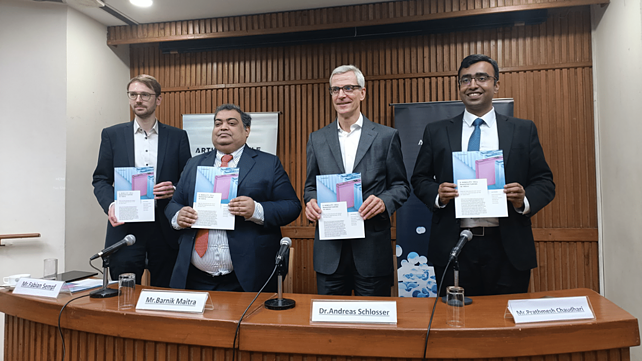
A report released by Arthur D. Little (ADL) today, titled “e-Mobility: Cell Manufacturing in India” has said indigenous EV battery manufacturing, will make India a large export hub in the world, in addition to increasing local EV adoption.
However, the nation needs to invest over $10 billion to boost cell manufacturing and raw material refining, just to serve the local demand of Li-ion batteries by 2030, and to create one million new jobs, said the report. India’s Li-ion battery demand will grow from 3 GWh currently to 20 GWh by 2026 and 70 GWh by 2030, ADL forecasted. Notably, 70% of India’s Li-ion battery requirement is currently imported from China and Hong Kong, ADL said.
The report also noted that the Indian EV industry suffers from over-dependence on imports, limited local manufacturing, finite access to raw materials, and refining capacities. This, when EV cells are the most critical part the of e-mobility value chain.
ADL said India can achieve self-reliance in Li-ion batteries only with large investments in R&D, supportive government policies, foreign direct investment inflows, and aggressive acquisition of raw material resources across geographies.
Harping on the need for collaboration, Barnik Chitran Maitra, Managing Partner, Arthur D Little, India, said the government and the industry ecosystem must collaborate to accelerate India’s electric mobility growth. This will further help nurture a self-reliant, local EV value chain, with established battery manufacturers, OEMs, and start-ups, investing in continuous R&D, partnerships, and global alliances to create a strong supply chain, Maitra said.
“This, along with demand from customers, will turn India into a global EV powerhouse,” he said.
Suggestions For Future
To cater to the increasing demand in the Indian market, government policies such as FAME I & II, efforts made by OEMs and traditional players, and new-age start-ups venturing into battery manufacturing may not be sufficient. ADL said it is imperative for Indian players to aspire for superior quality and environmental standards to gain eminent brand reputation, which will help India become self-sufficient in cells and position it as a global export hub.
The consulting firm also called upon the Indian government to work on multiple fronts to localise the supply chain for batteries, enabling better access to raw materials like lithium, cobalt, manganese, and nickel for domestic manufacturers. Bulk of the natural reserves for these materials are concentrated in a few countries.
In fact, limited access to key raw materials like lithium, nickel, cobalt, and manganese – that account for over 80% of cell cost – is one of the most critical challenges the Indian industry face. Moreover, India lacks adequate refining capabilities for these materials, said ADL. Thus, localising the Li-ion battery supply chain is key to India’s ambition of becoming self-reliant and positioning it as a global EV manufacturer and exporter.
The momentum of cell manufacturing localisation will accelerate further with better bilateral ties and investments in countries rich in natural resources of raw materials, ADL stated. In addition, India must look at incentivising local players, promoting sustainable domestic graphite mining with relaxation of stringent regulatory restrictions, increasing import duties on cells and batteries, tax subsidies, and PLI/incentivising manufacturing and recycling of batteries, development of SEZs/lithium parks and conducive regulations, the report said.
Indian battery players should invest in collaborative R&D in advanced cell chemistries like sodium-ion, metal-air and designs that are safer, sustainable and economical in the Indian context and could be commercialised at a large scale. Global partnership, joint ventures and acquisitions can boost capabilities and gain a robust talent edge, the consulting firm noted.
A robust, localised EV value chain can provide the strategic impetus in terms of reduction of emissions, savings on raw materials, and offsetting the loss of manufacturing jobs from traditional internal combustion engines (ICE) vehicles – making the country greener, smarter, and contributing to the national productivity, said the report.
Also Read:
Electric Public Transport Needs Right Model: Nitin Gadkari
Electric Vehicles Grab Spotlight At ACMA Convention
August E2W Sales: Hero Electric Leads, Ather Sells More Than Ola